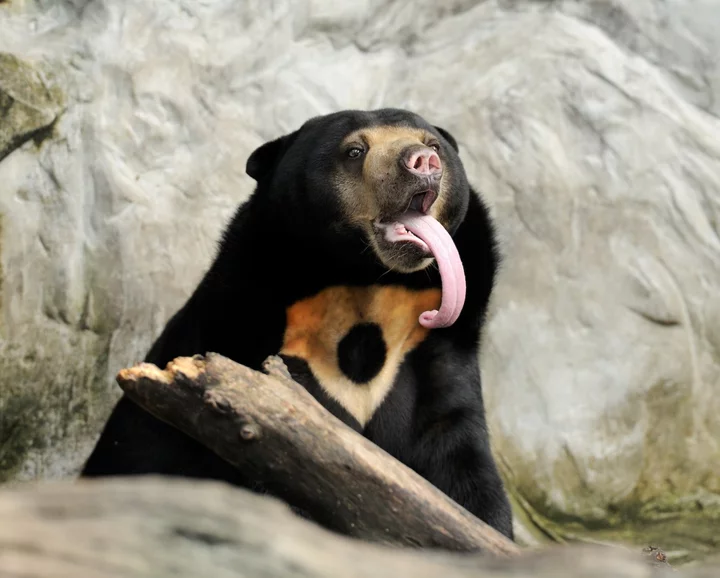Footage of a bear in China has awed the internet. Could that standing bear, which looks like someone in an ill-fitting costume, be real?
Folks, the bear is real.
The viral animal is a sun bear, Helarctos malayanus, that naturally lives in the warm tropical forests of Southeast Asia, though the species is found in zoos around the world, too. In a snippet of a video shot at the Hangzhou Zoo in China, one, with some imagination, might mistake the standing bear for a costumed park employee tolerating extreme summer heat inside a bear exhibit (which would be an absolutely terrible summer job). Rest assured, it's a bear, though the smallest bear in the world at about half the size of a black bear.
"Let me emphasize again: I am a sun bear! Not a black bear! Not a dog! It's a sun bear!" the Hangzhou Zoo posted on the Chinese social media account Weixin. (This posting, in Chinese, was translated.)
SEE ALSO: That beluga whale certainly doesn't have legs. Here's what it does have.Beyond the zoo's assertion that the bear is a bear, here's other evidence:
- Bears often stand up when they're curious about something, or want a better view. "A bear may stand on its hind legs to get a better look or to pick up your scent if it cannot tell what you are," the U.S. Forest Service explains.
- Sun bears have a lot of loose skin, which is especially apparent when they stand. The loose skin is a defensive adaptation. "If a predator were to latch on during a struggle, the sun bear can turn in its loose skin and bite its attacker," the San Diego Zoo writes.
- In the video, the bear crawls away on all four clawed paws, just like a bear.
If you're just learning about sun bears, congratulations! They are a fascinating bear species that naturally subsist on sap, insects, and coconuts. They have a light, telltale crescent marking on their chests, and carry an impressively long tongue. "The sun bear’s especially long tongue is perfectly suited for getting at honey and insects inside trees and other tight places," the San Diego Zoo explains.
Like many species today, sun bears are in competition with people for habitat and resources. The International Union for Conservation of Nature, an organization that assesses the population and health of species, lists the sun bear as "vulnerable."









